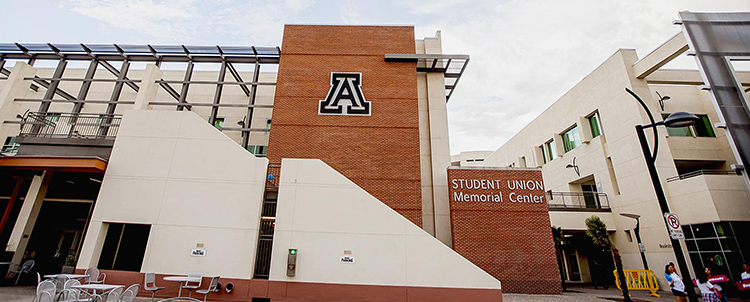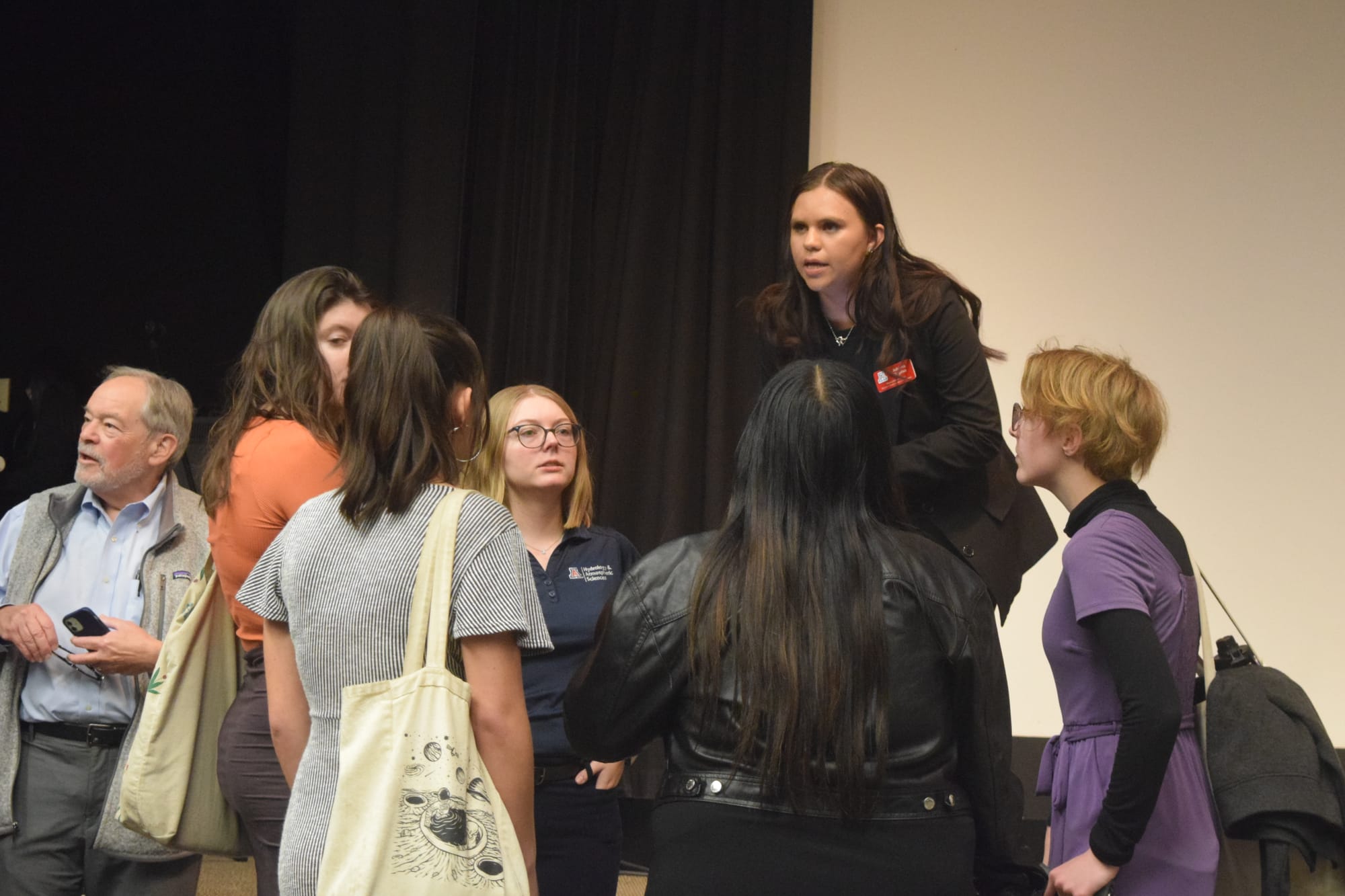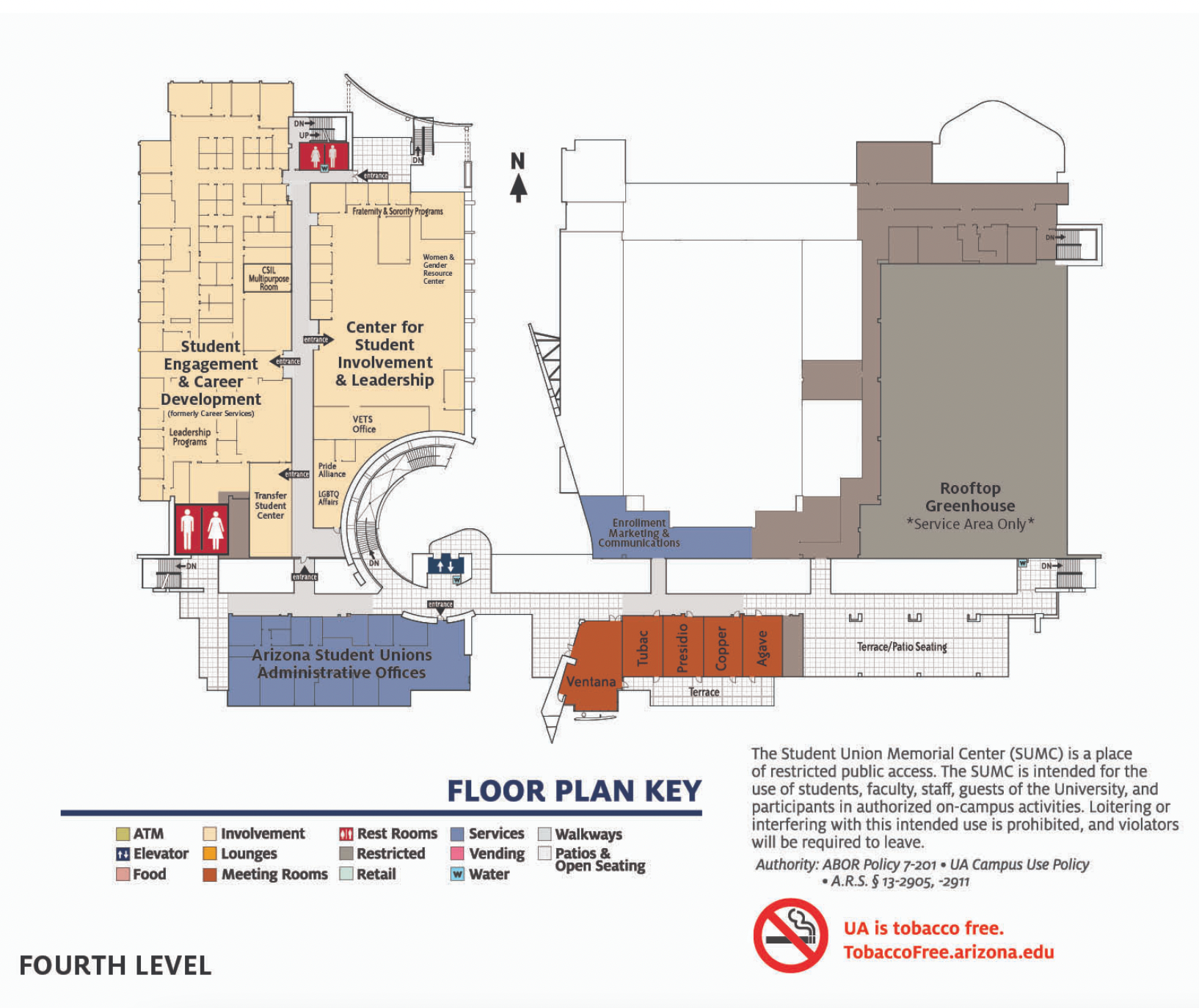UA pauses plans to move support and cultural groups out of student union
Officials acknowledged that administrators had not fully considered the “functional impact” of the displacement.

University of Arizona officials are pausing plans to move several groups out of the student union in response to complaints about the negative impact.
Last week, several student groups were told that they’d need to vacate some or part of their spaces to make room for employees with the Department of Enrollment Management.
Impacted groups include Survivor Advocacy, the United Fraternity and Sorority Council, Cultural and Inclusive Experiential Learning Opportunities and Asian Pacific American Student Affairs.
More than 200 students gathered in the Gallagher Theater Wednesday afternoon to meet with Interim Provost and Senior Vice President for Academic Affairs Ronald Marx so they could share their concerns and offer up potential solutions.
“It truly hurts me to see that this reason, the position to move enrollment management to the fourth floor of the student union has resulted in the displacement of student groups,” said ASUA Student Body President Adriana Grijalva.

The fourth floor of the student union represents more than just office space to the impacted groups, and for many students has become a second home and place to find support, connection and a sense of belonging, she said.
“And to now face uncertainty about where these spaces will go or what the future holds is not only frustrating, it (calls into question) the trust that we hold in our administration to advocate for the student needs,” she said.
Perla Alcaraz, Vice President of Academic Achievements for The United Sorority and Fraternity Council said moving the groups out of the student union would contradict the university’s core values of integrity, compassion, exploration, adaptation, inclusion, and determination.
“USFC is home to 18 multicultural and identity-based organizations. These organizations rely heavily on the (United Fraternity and Sorority Council) office space for chapter advancements, community growth and day to day operations,” she said.
She said that many of the organizations lack their own houses or facilities, making the office space essential.
ASUA Administrative Vice President Alpha Kappa Alpha Sorority member Alicia Hall echoed Alcaraz’s concerns, pointing to the impact of identity-based sororities, including hers, which is the first intercollegiate African American sorority in the U.S.
“My sorority, which provides service to all mankind and creates a safe space for Black women, is being displaced. Not only is my sorority, every sorority under the United Sorority Fraternity Council who does not have a house on Greek Row is being affected by this displacement,” she said. “There’s nowhere for us to store our things, or for us to have our intake process and our events.”

She encouraged Marx to look beyond these groups as more than just tools and support services and to try to see the people behind them.
“These students are more than enrollment numbers, diversity goals and bodies to fill this campus,” she said.
Representatives from Asian Pacific American Student Affairs said their group has faced multiple displacements over the years and is now at risk of being moved again. John Piamonte described the fourth-floor space as more than just physical space, but rather, a sanctuary.
“This space is more than walls and doors. It is a hub where students can come together to study, network, create and grow,” he said. “It is a place that nurtures belonging and fosters a family, a family that helps students navigate the challenges of their college careers.”
Piamonte stressed the importance of the space to not only APASA, but also to seven other centers that coexist on the fourth floor.
He urged administrators to halt disruptions to student spaces and engage in transparent, meaningful discussions with students about changes that affect their spaces.
Lily Arthur, director of Feminists Organized to Resist, Create and Empower, talked about the unique challenges survivors face and the potential harm caused by moving their advocacy services.
“While it’s true that you aren’t stopping the advocacy program by displacing them, there is no guarantee that they will have access to an equitable space that addresses the specific needs of survivors,” she said. “It sends the message that survivors don’t deserve to have a central place on campus.”

After letting students voice their concern, Interim Provost Marx apologized and acknowledged that administrators had not fully considered the “functional impact” of the displacement, particularly the disruption it would cause to the various cultural centers.
He said that he had spoken with UA President Suresh Garimella before the meeting and they had decided to “pause” the process.
“You can be assured that we’re going to stop this process right now and think about how to do this in a better way, collaborating with you and any other groups that might get involved in this,” Marx said.
Marx said that the next step would be to reassess the needs of the enrollment management team and find a more suitable space on campus.
And with two of the groups having already moved to temporary locations, Marx said he would work with all impacted groups to ensure their operations could continue without disruption.
“We will heed the advice that you gave us and we’ll move forward with you as collaborators as we find the right kind of space for the various functions of the university,” he said.
Isabela Gamez is a University of Arizona alum and Spotlight reporter. Contact her at gamezi@arizona.edu.
McKenna Manzo is a journalism major at the University of Arizona and Tucson Spotlight intern. Contact her at mckennamanzo@arizona.edu.
Tucson Spotlight is a community-based newsroom that provides paid opportunities for students and rising journalists in Southern Arizona. Please support our work with a paid subscription.



